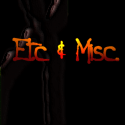|
|
|
Headaches -
General Information
Not all headaches are the same. The pain can be a
steady vice-like pressure, or an intense pounding. It can wrap itself
around the back of your head and down your neck, or hit full-force
right between the eyes. It can be a minor nuisance or a debilitating
event. Your specific symptoms can help you to determine which type of
headache you suffer from - and help you find the most effective
relief.
Tension Headaches
Tension headaches are often described as a "tightening or
constricting" sensation around the head and neck. Although
tension headaches are largely with stress/anxiety and poor posture,
other causes can include allergies, eyestrain, low blood sugar, sleep
loss, alcohol use and even clenching/grinding of teeth.
Migraines and Cluster Headaches
These headaches are far less common than tension headaches. These debilitating
conditions sometimes called vascular headaches because they are
believed to involve a swelling of blood vessels in the head. Only a
healthcare professional can determine if you headaches are vascular
headaches.
Migraines typically cause intense pain on one
side of the head, may cause nausea and vomiting and can cause painful
sensitivity to light and sound.
Cluster headaches are intense, short duration
event, occurring daily in a series over weeks or months and
predominantly in the area of one eye.
Sinus Pain and Headaches
Sinus pain and headaches may be the symptoms of an underlying medical
condition, such as sinusitis and may require medical treatment. Sinus
pain is caused by pressure behind the eyes, along the nose, and behind
the cheeks. This pressure can simply feel like a stuffy nose, or it
can be so intense and painful that it keeps you from your daily
routine.
Headache Tips
- Engage in stretching activities
- Take frequent breaks when sitting for prolonged
periods
- Adjust your work and home environments to ensure
good posture
- Massage your jaw, scalp, neck, and shoulders
- Apply ice packs to the back of your neck
- Get adequate sleep (7-8 hours)
- Take a long, warm bath or shower
When to Talk to Your Doctor
Be sure to talk with your doctor about any headache that:
- Occurs following a head injury
- Is accompanied by weakness in your arms or legs,
loss of balance, or change in vision or speech
- Is accompanied by disorientation, confusion, or a
drop or loss of consciousness
- Becomes worse if you cough, bend over, or strain
during a bowel movement
- Is accompanied by a high fever or convulsions
- Lasts longer then 24 hours
- Is frequent, persistent, or extremely intense and
painful
- Is like nothing you've ever experienced before -
especially if you're over 50.
Special thanks to McNeil Consumer
Healthcare for this information.
|







